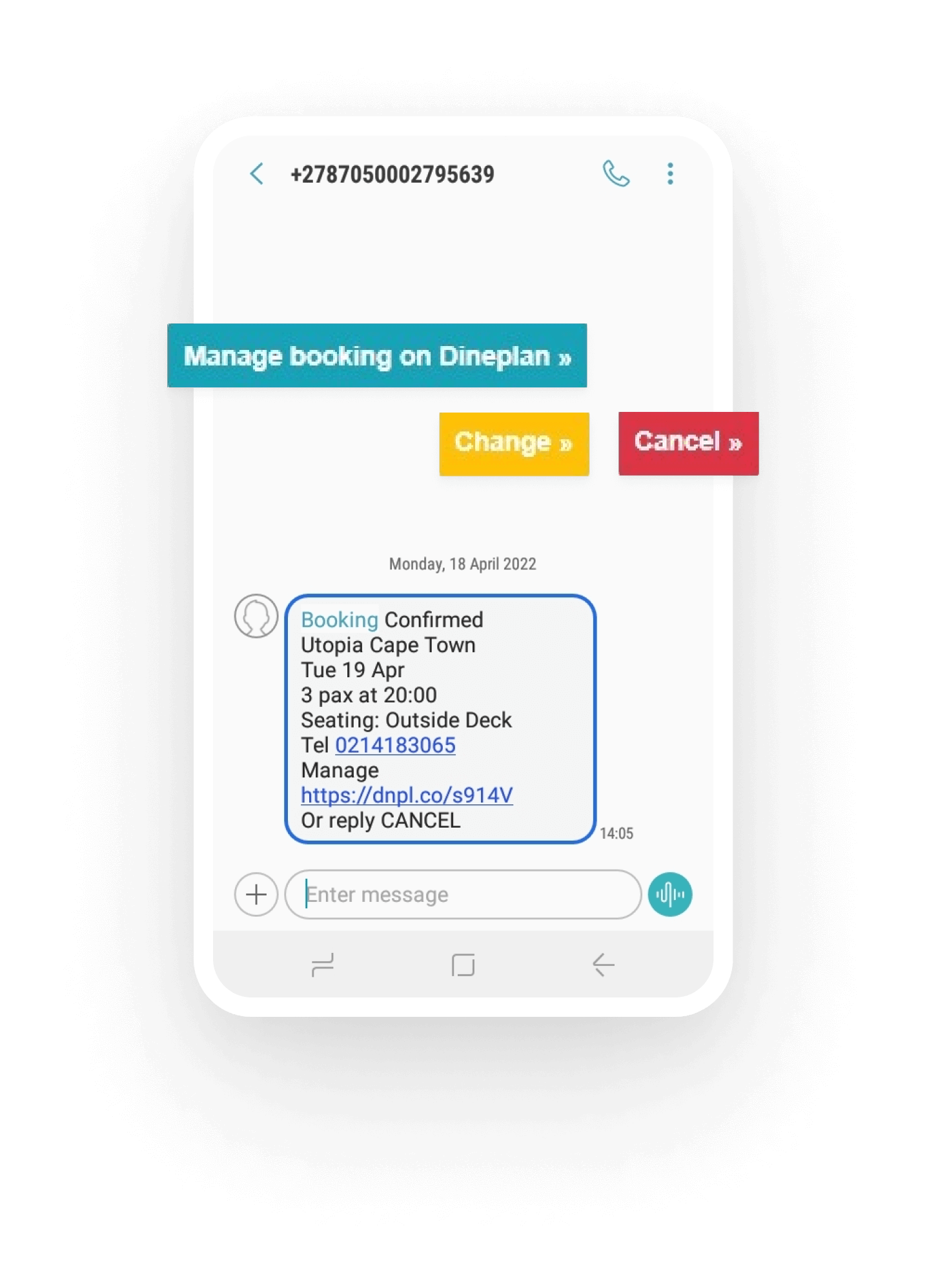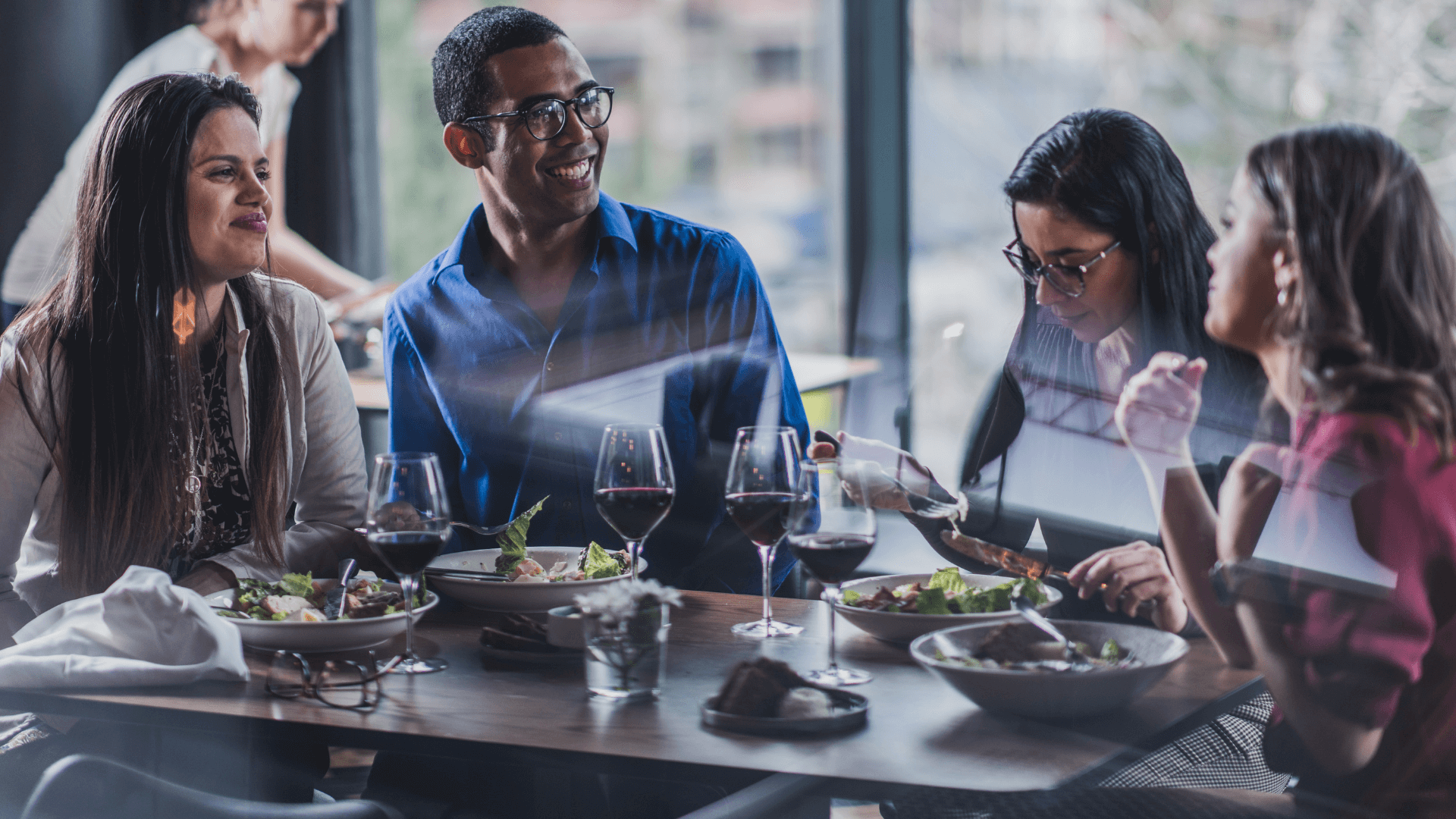In 2022, Dineplan processed 3,5 million reservations in South Africa during the course of the year, seating 17,8 million diners at restaurants across the country. This is despite the economic headwinds that put pressure on household disposable income and resulted in 67% of consumers cutting back on discretionary spending in 2022.
The South African restaurant industry is facing multiple challenges, including the looming global economic crisis and rising food and fuel costs. In this report, we examine the trends in restaurant reservations and diner behaviour to provide insights into how restaurants can overcome the potential challenges of 2023.
1. Telephone bookings have taken a knock in favour of online channels
Over the past four years, we have seen a significant shift in the way diners make their restaurant reservations.
Telephone bookings have declined by 21%, while online bookings have steadily increased – almost doubling in 2022.
The use of the Dineplan app, in particular, has skyrocketed with a 148% increase in bookings made through the app. This shift is likely driven by guests who value the convenience of online and app-based reservations, which make the process faster and more accessible for local diners and tourists alike.
2. Some diners are more reliable than others
No-shows are a common issue in the restaurant industry, occurring when a diner reserves a table but fails to show up without cancelling in advance. On average, roughly 20% of reservations end up as no-shows. This can be costly for restaurant owners in terms of both wasted time and money, leading them to take measures to reduce their no-show rate as much as possible.
However, Dineplan guests have proven to be reliable, with a very low no-show rate of 1.6% recorded in 2022. We attribute this, in part, to our built-in email and SMS booking confirmation and reminder system.
In 2022, only 1.6% of the reservations on Dineplan were reported as no-shows.
Another way of reducing the impact of no-shows is to request a booking deposit. In South Africa, our data shows that more restaurants are turning to booking deposits to mitigate the impact of no-shows.
3. Booking deposits are no longer exclusive to fine dining establishments
Over the past 12 months, there was a notable increase in the number of booking deposits we processed, with a 120% increase compared to pre-pandemic figures. Interestingly, the average value of these deposits decreased significantly.
In response to inflation, load shedding and increasing labour costs, restaurant owners are taking more proactive steps to prevent no-shows and the accompanying expenses. This has led to a rising trend among casual eateries of requesting small deposits to secure a table, which is then deducted from the final bill when the guests dine at the restaurant. Although this practice was previously reserved for fine dining establishments, it is now becoming increasingly popular across restaurant types.
More casual eateries request a small deposit to secure a table nowadays, which was formerly exclusive to fine dining establishments.
4. Average party size, dining time and guest feedback
After a period of reduced group gatherings in 2020 and 2021, the average restaurant reservation made through Dineplan in 2022 was for a party of 5-6 people. When eating out, diners in South Africa spend an average of 128 minutes at their table.
As for sharing feedback, 1 in 17 guests choose to leave a review on Dineplan after their meal, and the feedback received is overwhelmingly positive, with an average rating of 4.4 out of 5 stars.
The average review submitted on Dineplan is 4.4 out of 5 stars.
5. Automate where possible but retain the human element
While local restaurants should leverage technology and marketing to stay ahead of their competitors and weather the storm, the focus should remain on the guest experience and making customers happy. As automation booms, a low-tech counterpoint trend is emerging as many diners look for a more personal touch.
Find a software provider, like Dineplan, that offers a solution that combines automation with human connection.
With the ability to automate time-consuming tasks that are prone to human error, like phone bookings, confirmations and reminders, deposits, and more, restaurateurs are free to build personal relationships with their guests and respond personally to feedback.
Guests appreciate the convenience of self-service options when checking restaurant availability, making reservations, and submitting reviews online. However, they value the personal touch when it comes to their specific requests, such as dietary needs or seating preferences. Restaurants that remember their guests as regulars and provide personalised responses to their feedback are likely to see an increase in customer satisfaction and loyalty.
“The restaurant industry has consistently shown its resilience and ability to overcome a myriad of challenges, from economic recessions and daily power outages to a global pandemic. Armed with insights, I am confident that the industry will not only weather any future obstacles but succeed and emerge even stronger.” – Greg Whitfield, Co-founder and CEO
The best way to manage your reservations
Streamline your restaurant reservation process & gain access to over 500,000 diners through the Dineplan Guest Network.



0 Comments